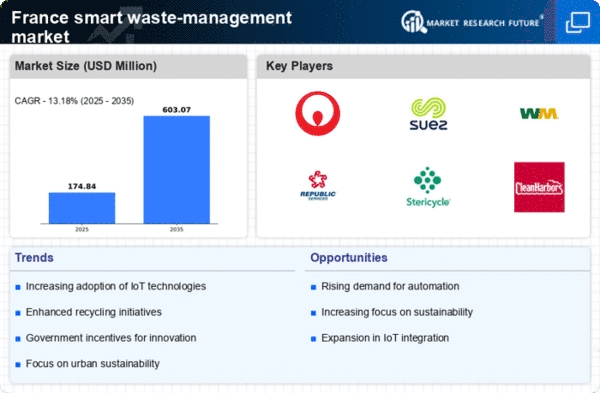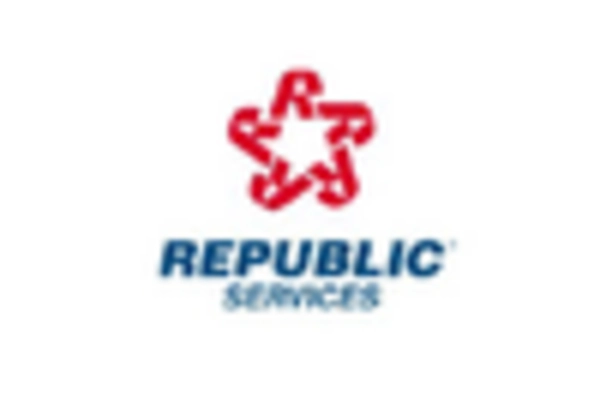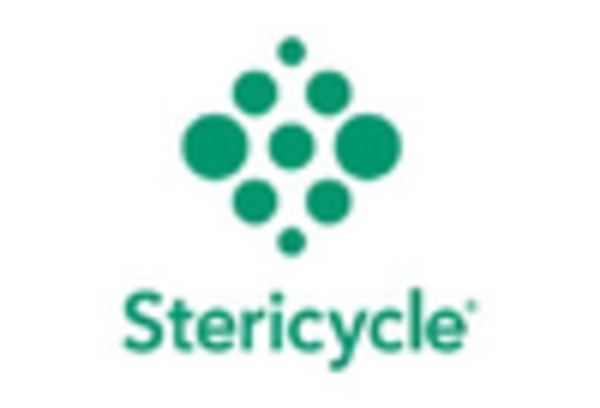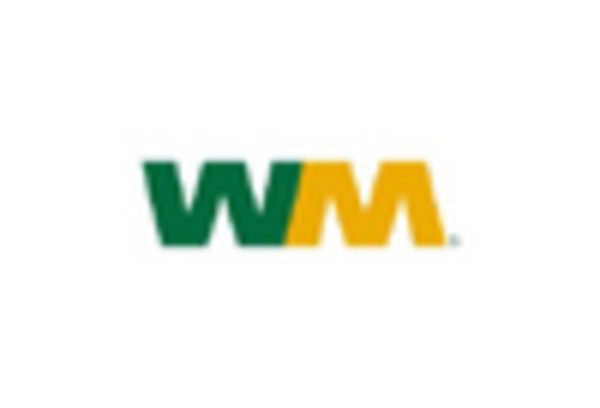Public Awareness and Engagement
Public awareness regarding waste management issues is on the rise in France, which is positively influencing the smart waste-management market. Educational campaigns aimed at promoting recycling and waste reduction are becoming more prevalent. As citizens become more engaged in sustainable practices, there is a growing demand for smart waste solutions that facilitate these efforts. For instance, smart bins equipped with user-friendly interfaces can provide information on recycling practices, thereby encouraging proper waste disposal. This heightened public engagement is expected to drive the adoption of smart waste technologies, as communities seek to align with environmentally responsible practices.
Investment in Smart Infrastructure
Investment in smart infrastructure is a key driver for the smart waste-management market in France. The government and private sector are increasingly allocating funds towards the development of smart cities, which include integrated waste management systems. Reports suggest that investments in smart infrastructure could reach €1 billion by 2027, significantly enhancing the capabilities of waste management services. This influx of capital is likely to facilitate the deployment of advanced technologies, such as automated waste sorting and smart collection vehicles. As these investments materialize, the smart waste-management market is expected to experience substantial growth, driven by the need for more efficient and sustainable waste management solutions.
Urbanization and Population Growth
Urbanization and population growth in France are putting pressure on existing waste management systems. As urban areas expand, the volume of waste generated increases, necessitating more efficient waste management solutions. The smart waste-management market is poised to benefit from this trend, as cities look for innovative ways to handle waste more effectively. Projections indicate that urban populations in France could rise by 10% by 2030, leading to a corresponding increase in waste generation. This scenario presents a significant opportunity for smart waste technologies to streamline operations and improve waste collection efficiency, thereby addressing the challenges posed by urbanization.
Regulatory Support for Waste Management
The French government has been increasingly supportive of initiatives aimed at enhancing the smart waste-management market. Legislative measures, such as the Circular Economy Law, promote sustainable waste practices and encourage the adoption of smart technologies. This regulatory framework is designed to reduce landfill waste by 50% by 2025, which could significantly impact the smart waste-management market. Furthermore, financial incentives for municipalities to invest in smart waste solutions are likely to drive market growth. As local governments seek to comply with these regulations, the demand for innovative waste management solutions is expected to rise, thereby fostering a more efficient and environmentally friendly waste management system.
Technological Advancements in Waste Collection
Technological innovations are playing a crucial role in shaping the smart waste-management market. The introduction of advanced sensors and data analytics tools enables real-time monitoring of waste levels in bins, optimizing collection routes and schedules. In France, municipalities that have adopted these technologies report a reduction in operational costs by up to 30%. This efficiency not only lowers expenses but also enhances service delivery to residents. As cities continue to modernize their waste management systems, the integration of these technologies is likely to become a standard practice, further propelling the growth of the smart waste-management market.
















